2020 Review: Finding Focus
2020 wasn't an easy year.
Instead of talking about that, let's focus on what went right!
For Frameland, 2020 was actually a very good year! We made over 100 new maps, compared to 70 maps in the previous two and a half years before that. Also, we felt like this was the year the team really came together. So, we thought that this might be a great time to reflect on Frameland's progress and share what we have learned as a team.
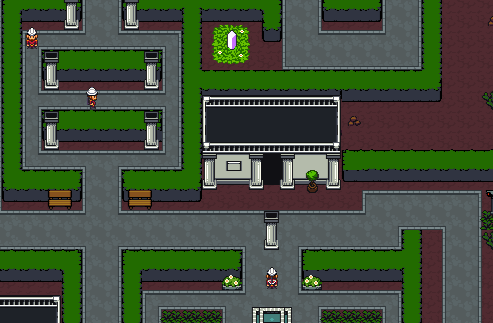
1 of the 100 new maps we did in 2020
So what went right, that we could crank out more than 3 times as many maps as in the previous years? There were of course many contributing factors, but the two deciding ones were focus and organisation.
Pre-2020 Process
To better illustrate how our process improved, let's recap how things were before. We all work remotely, which means: how well you work together is defined by the way you communicate.
In the past, our process was mostly unorganised. When someone had an idea for something, they posted it in the Discord team chat (which, at times, only had one channel). Sometimes, we would start working on that idea immediately. Sometimes, it would be lost in communication. Whether it was a one-frame animation for an NPC, or a critical change to the story, we just put into Discord and hoped for the best.
But the worst impact was on our story. Whenever we changed something, it broke something else. What made matters worse, was that each member had a slightly different version of the story in their mind. Story was mostly documented in scattered documents, some of which were outdated, and all in one, they were not well-organised.
By late 2019, we knew we had to tackle this. But how?
Finding an alternative to chat
The first step is to move away from a chat-only medium like Discord. A one-dimensional wall of text with no context is simply not good enough for in-depth discussions. Here's a great article on Basecamp about that same topic, but here's the gist:
- Lack of context
- Inability to reference later
- Thinking one line at a time (rather than one thought a time)
- ASAP culture
- Fear of missing out or not having a say
We still use Discord to hash things out quickly, showcase our work, and get together as a team. But we moved away from using chat as our primary method of communication.
So, we want to reference information later, contextualize and compartmentalise, and allow for deep, focused work. All of that can be solved with a wiki, where you have one place for all the games information in a structured way. All the big companies seem to use confluence.
So let's just use confluence, right? ... No.
We ultimately decided to use Notion because it best solved the problems we had with a chat-only approach:
- Each Task / Page is it's own context
- We have a single source of truth, regarding information about the game (always up to date)
- Information can be viewed later (no ASAP culture)
- A Kanban board allows for easy management of tasks (context + compartmentalisation)
- We can comment on anything that needs discussion (while maintaining context)
- We have many ways to structure and sort information
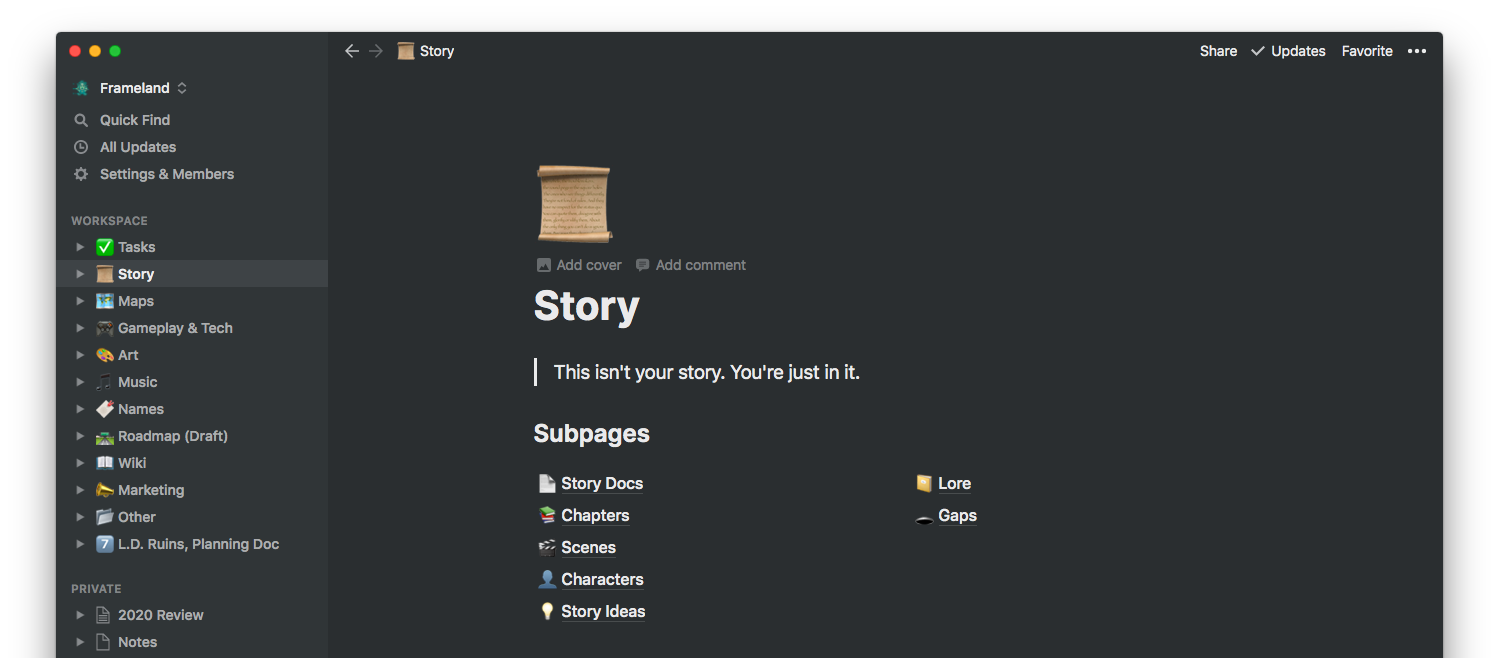
Organization
Speaking of organisation: it was especially useful for us to split the game into several chapters. Not only does it make planning the story easier, it makes talking about the project easier, too → "Let's work on Chapter 4 these next two months". While it's essentially just a bit of categorising, it helped improve structure — and gave us a better, shared understanding of the game. Divide and conquer!
Focus
Before, we would work on whatever came to mind, often going back to improve things we made in the past but weren't quite satisfied with. We did none of that in 2020. And it has everything to do with making visible what you're working on. Our current approach is to use a planning document to sketch out the details of what an area should look like, such as:
- Location, name and purpose (for the story)
- Moodboard for the environment and tile art
- Setting research (e. g. how big is the city, important places, sights, structure, water supply, etc.)
- Prototype map
Once we have these things figured out, we start mapping. A big advantage is now that everyone has a shared understanding of what we are going to build, and we have a structured document which can be referenced later. If something is unclear or needs discussion, Notion allows you to discuss via comments, and said comments can later be resolved so they don't clutter up the interface.
TL;DR: Moved the planning from our heads into Notion. Big success!
Colors
In the last few weeks, we have also been working to improve the colors of the game. Currently, there are over 1,200 different colors in the game, most of which are similar or serve the same purpose. We are working on a reduced color palette to create a more consistent look and allow for creative use of a limited color palette:
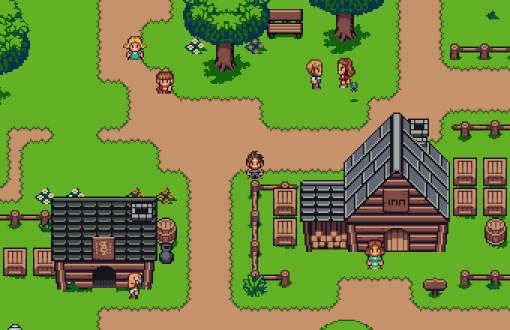
Even particles should look more cohesive to the game's pixelated art style:
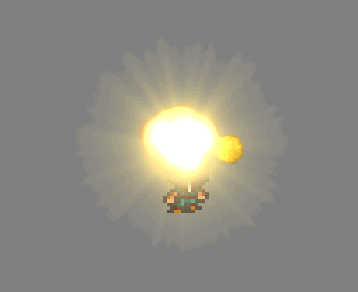
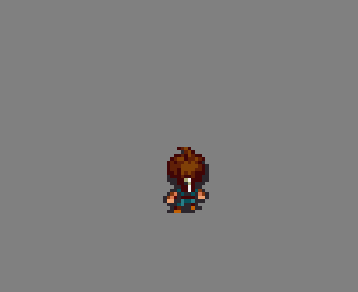
before / after doing some shader magic
What Lies Ahead
We are not ready to announce a release date just yet, but there will be news later this year! As we are nearly done with the maps, we will be able to focus more on gameplay and story. After that, we will try and polish the game to really make sure it's an experience worth your time. And we hope that you'll be along for the ride :)
For more frequent updates, follow us on Twitter (https://twitter.com/frameland) or join our public Discord (https://discord.gg/BA3rdVTc5V)
Get Frameland - A Binary Tale
Frameland - A Binary Tale
A short RPG with a big heart.
| Status | Released |
| Author | Frameland: A Binary Tale |
| Genre | Role Playing |
| Tags | 16-bit, 2D, JRPG, Story Rich, Turn-Based Combat |
| Languages | German, English |
More posts
- Frameland is now available on itch.io with a 15% discount!Feb 01, 2025
- Frameland Demo and Release Date Revealed at Steam RPG FestOct 01, 2024
- 2023Dec 31, 2023
- Frameland: Gameplay TrailerNov 14, 2023
- Frameland is now on Steam + new website!Oct 15, 2022
- New Demo, we need Testers! (get paid 5$)May 09, 2018
- Overview Video showing off the new battle systemFeb 08, 2018
- A New Battle-SystemAug 05, 2017
- Demo Bug FixesJun 04, 2017

Leave a comment
Log in with itch.io to leave a comment.